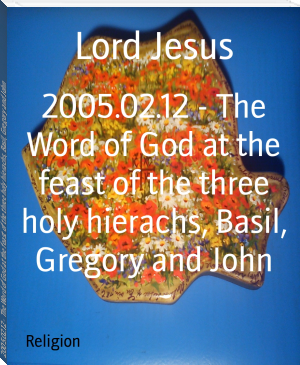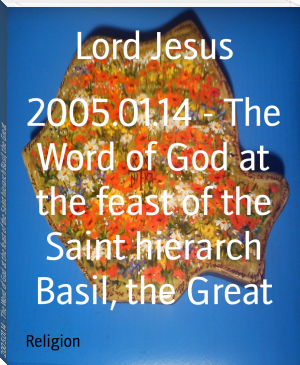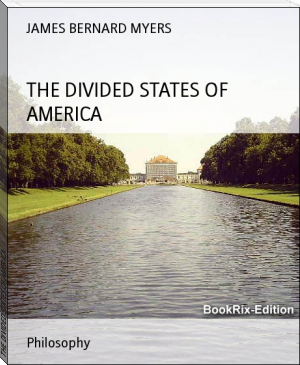The Book of Missionary Heroes by Basil Mathews (young adult books to read .txt) 📕

- Author: Basil Mathews
- Performer: -
Book online «The Book of Missionary Heroes by Basil Mathews (young adult books to read .txt) 📕». Author Basil Mathews
Two of these pioneer boys became very good scholars. One named Mukasa became a Christian and was baptised with the name Samweli (Samuel); another called Kakumba was baptised Yusufu (Joseph). A third boy had been captured from a tribe in the north, and his skin was of a much lighter brown than that of the Baganda boys. This light-skinned captured slave was named Lugalama.
Each of these boys felt that it was a very proud day when at last he could actually read a whole sheet of printing from beginning to end in his own language—from "Our Father" down to "the Kingdom, the power and the glory, Amen."
One morning these page-boys leapt to their feet as they heard the familiar rattle of the drums that heralded the coming of King M'tesa. They bowed as he entered the hall and sat heavily on his stool, while his chiefs ranged themselves about him.
On a stool near the King sat Mackay, the White-Man-of-Work. His bronzed face was set in grim determination, for he knew that on that morning he had a difficult battle to fight.
Another loud battering of drum-heads filled the air. The entrance to the hut was darkened by a tall, swarthy Arab in long, flowing robes, followed by negro-bearers, who cast on the ground bales of cloth and guns. The Arab wore on his head a red fez, round which a coloured turban scarf was wound. He was a slave-trader from the coast, who had come from the East to M'tesa in Uganda to buy men and women and children to carry them away into slavery.
King M'tesa was himself not only a slave-trader but a slave-raider. He sent his fierce gangs of warriors out to raid a tribe away in the hills to the north. They would dash into a village, slay the men, and drag the boys and girls and women back to M'tesa as slaves. The bronze-skinned boy, Lugalama, was a young slave who had been captured on one of these bloodthirsty raids. And M'tesa, who often sent out his executioners to slay his own people by the hundred to please the dreaded and horrible god of small-pox, would also sell his people by the hundred to get guns for his soldiers.
The Arab slave-trader bowed to the earth before King M'tesa, who signalled to him to speak.
"I have come," said the Arab, pointing to the guns on the floor, "to bring you these things in exchange for some men and women and children. See, I offer you guns and percussion caps and cloth." And he spread out lengths of the red cloth, and held out one of the guns with its gleaming barrel.
King M'tesa's eyes lighted up with desire as he saw the muskets and the ammunition. These, he thought, are the things that will make me powerful against my enemies.
"I will give you," the Arab slave-trader went on, "one of these lengths of red cloth in exchange for one man to be sold to me as a slave; one of these guns for two men; and one hundred of these percussion caps for a woman as a slave."
Mackay looked into the cruel face of M'tesa, and he could see how the ambitious King longed for the guns. Should he risk the favour of the King by fighting the battle of a few slaves? Yet Mackay remembered as he sat there, how Livingstone's great fight against the slave-traders had made him, as a student, vow that he too would go out and fight slavery in Africa. The memory nerved him for the fight he was now to make.
Mackay turned to M'tesa and said words like these:[55]
"O King M'tesa, you are set as father over all your multitude of people. They are your children. It is they who make you a great King.
"Remember, O King, that the Sultan of Zanzibar himself has signed a decree that no slaves shall be taken in all these lands and sold to other lands down beyond the coast, whither this Arab would lead your children. Therefore if you sell slaves you break his law.
"Will you, then, sell your own people that they may be taken out of their homeland into a strange country? They will be chained to one another, beaten with whips, scourged and kicked, and many will be left at the wayside to die; till the peoples of the coast shall laugh at Uganda and say, 'That is how King M'tesa lets strangers treat his children!'"
We can imagine how the Arab turned and scowled fiercely at Mackay. His heart raged, and he would have given anything to plunge the dagger hidden in his robe into Mackay's heart. Who was this white man who dared to try to stop his trade? But Mackay went on.
"See," he said, pointing to the boys and the chiefs, "your children are wonderfully made. Their bones, which are linked together, are clothed with flesh; and from the heart in their breasts the blood that gives men life flows to and fro through their bodies, while the breath goes in and out of their lungs and makes them live. God the Father and Maker of all men alone can create such wonders. No men who ever lived could, if they worked all through their lives, make one thing so marvellous as one of these boys. Will you, then, sell one of these miracles, one of your children, for a bit of red rag which any man can make in a day?"
All eyes turned to King M'tesa to learn what he would say.
The King with a wave of his hand dismissed the scowling Arab, while he took counsel with his chiefs, and came to this decision:
"My people shall no more be made slaves."
A decree was written out and King M'tesa put his hand to it. The crestfallen Arab and his men gathered up their guns and cloths, marched down the hill to buy ivory instead of slaves for their bales of red cloth, and went out of the dominions of King M'tesa, across the Great Lake homeward.
Mackay had won the first battle against slavery. His heart was very glad. Yet he knew that, although he had scored a triumph in this fight with the slave-dealer, he had not won in his great campaign. The King was generally kind to Mackay, for he was proud to have so clever a white man in his country. But he could not make up his mind to become a Christian. M'tesa's heart had not really changed. His slave-raiding of other tribes might still go on. The horrible butcherings of his people to turn away the dreaded anger of the gods would continue. Mackay felt he must press on with his work. He was slowly opening a road through the jungle of cruelty and the marshes of dread of the gods that made the life of the Baganda people dark and dreadful.
All Uganda waited breathless one day as though the end of the world had come.
"King M'tesa is dead!" the cry went out through all the land.
The people waited in dread and on tiptoe of eagerness till the new king was selected by the chiefs from the sons of the dead ruler.
At last a great cheer went up from the Palace. "M'wanga has eaten Uganda!" they shouted.
By this the people meant that M'wanga, a young son of M'tesa—only eighteen years old—had been made King. He was, however, a boy with no power—the mere feeble tool of the Katikiro (the Prime Minister) and of Mujasi, the Captain of the King's own bodyguard of soldiers. Both of these great men of the kingdom fiercely hated Mackay, for they were jealous of his power over the old King. So they whispered into the young M'wanga's ears stories like this: "You know that men say that Uganda will be eaten up by an enemy from the lands of the rising sun. Mackay and the other white men are making ready to bring thousands of white soldiers into your land to 'eat it up' and to kill you."
So M'wanga began to refuse to speak to Mackay. Then, because the King was afraid to attack him, he began to lay plots against the boys.
One morning Mackay started out from his house with five or six boys and the crew of his boat to march down to the lake. Among the boys were young Lugalama—the fair-haired slave-boy, now a freed-slave and a servant to Mackay—and Kakumba, who had (you remember) been baptised Joseph. The King and the Katikiro had given Mackay permission to go down to the lake and sail across it to take letters to a place called Msalala from which the carriers would bear them down to the coast.
Down the hill the party walked, the crew carrying the baggage and the oars on their heads. Mackay and his colleague Ashe, who had come out from England to work with him, walked behind.
To their surprise there came running down the path behind them and past them a company of soldiers.
"Where are you going?" asked Mackay of one of the soldiers.
"Mujasi, the Captain of the Bodyguard," he replied, "has sent us to capture some of the King's wives who have run away."
Another and yet another body of soldiers rushed past them. Mackay became more and more suspicious that some foul plot was being brewed. He and his company had walked ten miles, and the lake was but two miles away, divided from them by a wood. Suddenly there leapt out from behind the trees of the wood hundreds of men headed by Mujasi himself.
They levelled their guns and spears at Mackay and his friends and yelled, "Go back! Go back!"
"We are the King's friends," replied Mackay, "and we have his leave to travel. How dare you insult us?"
And they pushed forward. But the soldiers rushed at them; snatched their walking-sticks from them and began to jostle them. Mackay and Ashe sat down by the side of the path. Mujasi came up to them.
"Where are you walking?" he asked.
"We are travelling to the port with the permission of King M'wanga and the Katikiro."
"You are a liar!" replied Mujasi.
Mujasi stood back and the soldiers rushed at the missionaries, dragged them to their feet and held the muzzles of their guns within a few inches of their chests. Mackay turned with his boys and marched back to the capital.
He and Ashe were allowed to go back to their own home on the side of the hill, but the five boys were marched to the King's headquarters and imprisoned. The Katikiro, when Mackay went to him, refused to listen at first. Then he declared that Mackay was always taking boys out of the country, and returning with armies of white men and hiding them with the intention of conquering Uganda.
The Katikiro waved them aside and the angry waiting mob rushed on the missionaries yelling, "Mine shall be his coat!" "Mine his trousers!" "No, mine!" shouted another, as the men scuffled with one another.
Mackay and Ashe at last got back to their home and knelt in prayer. Later on the same evening, they decided to attempt to win back the King and the Prime Minister and Mujasi by gifts, so that their imprisoned boys would be freed from danger.
Mackay spoke to his other boys, telling them to go and fly for their lives or they would be killed.
In the morning





Comments (0)